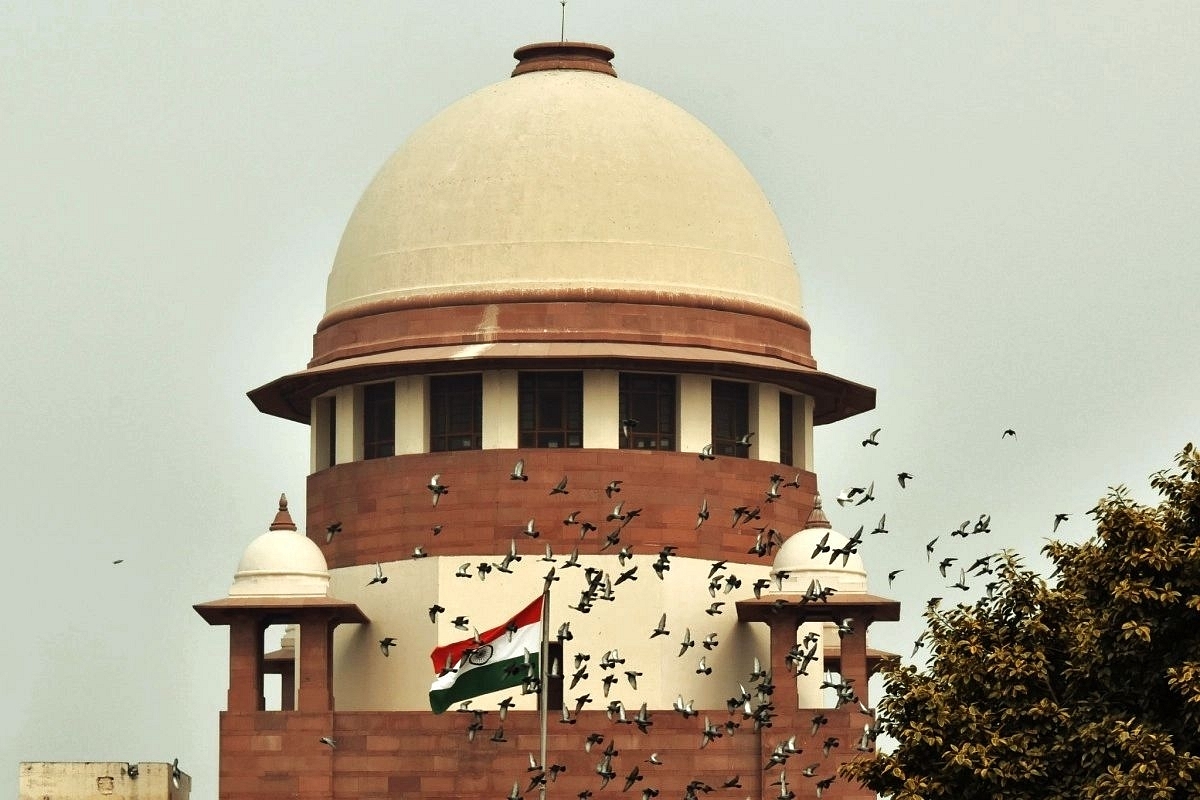Legal
Queer Couple Has The Right To Jointly Adopt A Child: CJI Says In Same-Sex Marriage Case

The Supreme Court of India.
The Supreme Court is delivering its verdict on a batch of petitions seeking legal recognition of same sex marriage.
Chief Justice of India D Y Chandrachud said that there were four judgments in this case, by him, Justice SK Kaul, Justice Bhat and Justice PS Narasimha.
"There is a degree of agreement and degree of disagreement," he said.
The CJI, in his verdict, directed the Union, States, Union Territories are directed to ensure queer community is not discriminated against.
He also directed them to ensure no discrimination in supply of goods and services, sensitise the public to prevent harassment of any kind.
Further, he also directed establishment of safe houses in all areas,
He also asked them to ensure that sex change operations are not allowed when they are not of age to comprehend the effect of such procedures.
"No person shall undergo hormonal therapy as a precondition to be able to be recognised as a queer person," the CJI said in his order.
He also directed the police to ensure that no queer person is harassed to ascertain gender identity, no force by police to go back to their natal families; when a police complaint is filed by a queer couple, after verification, due protection to be granted.
In his verdict, the CJI said that freedom of queer to enter into union is guaranteed under the Constitution. Denial of rights to them is a denial of fundamental right violation, he added.
CJI said that Solicitor General Mehta had assured that a Committee shall be set up with domain experts.
He directed the committee to hold wide stakeholder consultations with the queer community to see if such families can have:-
ration cards,
can have insurance facilities,
If medical practitioners have the obligation to consult family for terminal illness;
Rights from employment (pension, gratuity etc.) etc.
The committee report to be looked at the Union government level, the CJI directed.
Justice Kaul in his order stated that same-sex relationships have been recognized from antiquity, not just for sexual activities but as relationships for emotional fulfillmen.
"I agree with the judgment of CJI," he said.
"It is not re integra for a constitutional court to uphold the rights and the court has been guided by constitutional morality and not social morality. These unions are to be recognized as a union to give partnership and love," he said.
Justice Ravindra Bhat said that he along with Justice Narasimha disagreed with the CJI.
"Civil marriage and such relationships cannot exist in absence of a statute," Justice Bhat said.
"Right to cohabit cannot lead to setting up of an institution... Ordering a social institution or re-arranging existing social structures would require the construction of a new code and also require marriage laws concerning alimony etc.. We cannot agree with CJI tracing union to freedom of speech and expression and the positive obligations. Queer people have the right to privacy, dignity and to choose a partner. We disagree with the CJI in this regard which forms the basis of the final conclusions," he said.
Earlier, the five-judge SC bench, led by CJI D Y Chandrachud and including Sanjay Kishan Kaul, Ravindra Bhat, Hima Kohli, and PS Narishma, had insisted that it was solely examining the legal aspects of the Special Marriage Act and the Foreign Marriage Act, and not recognising non-heterosexual marriages.
Consistently opposing the recognition of same-sex marriage, the government had labeled it as an urban elitist concept and argued that the decision and debate on this issue should be left to parliament.
On 11 May, a ten-day marathon hearing concluded with the five-judge Constitutional Bench, headed by CJI Chandrachud, reserving its judgment on the petitions for legal recognition of same-sex marriage.
The Centre had challenged the maintainability of over 21 petitions that seek legal recognition of same-sex marriage.
It argued that the courts do not have the authority to create or recognise marriages through judicial interpretation or legislative amendments.
The apex court had clarified that it will not interfere with personal laws, such as the Hindu Marriages Act, and will only focus on the Special Marriage Act.
The Centre contended that marriage is exclusively a heterosexual institution and that those advocating for marriage equality are urban elites. The Supreme Court strongly objected to this argument, questioning the lack of data to support it.
The Centre's argument that a person's gender is defined by their biological gender was challenged by CJI Chandrachud.
"There is no absolute concept of a man or an absolute concept of a woman at all. It's not the question of what your genitals are. It's far more complex, that's the point. So even when the Special Marriage Act says man and woman, the very notion of a man and a woman is not absolute based on genitals," the CJI said, NDTV reported.
Support Swarajya's 50 Ground Reports Project & Sponsor A Story
Every general election Swarajya does a 50 ground reports project.
Aimed only at serious readers and those who appreciate the nuances of political undercurrents, the project provides a sense of India's electoral landscape. As you know, these reports are produced after considerable investment of travel, time and effort on the ground.
This time too we've kicked off the project in style and have covered over 30 constituencies already. If you're someone who appreciates such work and have enjoyed our coverage please consider sponsoring a ground report for just Rs 2999 to Rs 19,999 - it goes a long way in helping us produce more quality reportage.
You can also back this project by becoming a subscriber for as little as Rs 999 - so do click on this links and choose a plan that suits you and back us.
Click below to contribute.
Latest